Hallo zusammen,
aufgrund unseres gestrigen Blogbeitrags haben sich viele Kunden bei uns gemeldet die mit dem Shield schon experimentierten und Probleme hatten den SD-Kartenleser zusammen mit dem W5100 gleichzeitig zu nutzen. Wir haben etwas recherchiert und eine Lösung gefunden, welche wir Ihnen heute vorstellen möchten. Gerd hat uns vor kurzem gezeigt wie man einen ESP als Fileserver mit SD-Karte nutzt. Wir adaptieren heute die Lösung für den Uno mit Shield und stellen Ihnen den funktionierenden Code mit den Standart-Bibliotheken vor.
Hardware:
- UnoR3
- EthernetShield W5100
- micro SD-Karte mit Fat32-Dateisystem
Code:
/* * This sketch uses the microSD card slot on the Arduino Ethernet shield * to serve up files over a very minimal browsing interface * * Some code is from Bill Greiman's SdFatLib examples, * some is from the Arduino Ethernet WebServer example, * some is from Limor Fried (Adafruit), * some is from "jurs" for German Arduino forum, * so its probably under GPL */ #include <SD.h> #include <SPI.h> #include <Ethernet.h> /************ ETHERNET STUFF ************/ Byte mac[] = { 0xDE, 0xAD, 0xBE, 0xEF, 0xFE, 0xED }; Byte ip[] = { 192, 168, 168, 245 }; EthernetServer server(80); /************ SDCARD STUFF ************/ Sd2Card card; SdVolume volume; SdFile root; SdFile file; // store error strings in flash to save RAM #define error(s) error_P(PSTR(s)) void error_P(const char* str) { PgmPrint("error: "); SerialPrintln_P(str); if (card.errorCode()) { PgmPrint("SD error: "); Serial.print(card.errorCode(), HEX); Serial.print(','); Serial.println(card.errorData(), HEX); } while(1); } char* strupper( char* s ) // helper function char array to uppercase letters { for (char* p = s; *p; ++p) *p = toupper( *p ); return s; } char* strlower( char* s ) // helper function char array to lowercase letters { for (char* p = s; *p; ++p) *p = tolower( *p ); return s; } void setup() { Serial.begin(9600); PgmPrint("Free RAM: "); Serial.println(FreeRam()); // initialize the SD card at SPI_HALF_SPEED to avoid bus errors with // breadboards. use SPI_FULL_SPEED for better performance. pinMode(10, OUTPUT); // set the SS pin as an output (necessary!) digitalWrite(10, HIGH); // but turn off the W5100 chip! if (!card.init(SPI_HALF_SPEED, 4)) error("card.init failed!"); // initialize a FAT volume if (!volume.init(&card)) error("vol.init failed!"); PgmPrint("Volume is FAT"); Serial.println(volume.fatType(),DEC); Serial.println(); if (!root.openRoot(&volume)) error("openRoot failed"); // list file in root with date and size PgmPrintln("Files found in root:"); root.ls(LS_DATE | LS_SIZE); Serial.println(); // Recursive list of all directories PgmPrintln("Files found in all dirs:"); root.ls(LS_R); Serial.println(); PgmPrintln("Done"); // Debugging complete, we start the server! Ethernet.begin(mac, ip); server.begin(); } void ListFiles(EthernetClient client, uint8_t flags) { // This code is just copied from SdFile.cpp in the SDFat library // and tweaked to print to the client output in html! dir_t p; root.rewind(); client.println("<ul>"); while (root.readDir(p) > 0) { // done if past last used entry if (p.name[0] == DIR_NAME_FREE) break; // skip deleted entry and entries for . and .. if (p.name[0] == DIR_NAME_DELETED || p.name[0] == '.') continue; // only list subdirectories and files if (!DIR_IS_FILE_OR_SUBDIR(&p)) continue; // print any indent spaces client.print("<li><a href=\""); for (uint8_t i = 0; i < 11; i++) { if (p.name[i] == ' ') continue; if (i == 8) { client.print('.'); } client.print((char)p.name[i]); } client.print("\">"); // print file name with possible blank fill for (uint8_t i = 0; i < 11; i++) { if (p.name[i] == ' ') continue; if (i == 8) { client.print('.'); } client.print((char)p.name[i]); } client.print("</a>"); if (DIR_IS_SUBDIR(&p)) { client.print('/'); } // print modify date/time if requested if (flags & LS_DATE) { root.printFatDate(p.lastWriteDate); client.print(' '); root.printFatTime(p.lastWriteTime); } // print size if requested if (!DIR_IS_SUBDIR(&p) && (flags & LS_SIZE)) { client.print(' '); client.print(p.fileSize); } client.println("</li>"); } client.println("</ul>"); } // How big our line buffer should be. 100 is plenty! #define BUFSIZ 100 void loop() { char clientline[BUFSIZ]; int index = 0; EthernetClient client = server.available(); if (client) { // an http request ends with a blank line boolean current_line_is_blank = true; // reset the input buffer index = 0; while (client.connected()) { if (client.available()) { char c = client.read(); // If it isn't a new line, add the character to the buffer if (c != '\n' && c != '\r') { clientline[index] = c; index++; // are we too big for the buffer? start tossing out data if (index >= BUFSIZ) index = BUFSIZ -1; // continue to read more data! continue; } // got a \n or \r new line, which means the string is done clientline[index] = 0; // Print it out for debugging Serial.println(clientline); // Look for substring such as a request to get the root file if (strstr(clientline, "GET / ") != 0) { // send a standard http response header client.println("HTTP/1.1 200 OK"); client.println("Content-Type: text/html"); client.println(); // print all the files, use a helper to keep it clean client.println("<h2>Files:</h2>"); ListFiles(client, LS_SIZE); } else if (strstr(clientline, "GET /") != 0) { // this time no space after the /, so a sub-file! char *filename; filename = clientline + 5; // look after the "GET /" (5 chars) // a little trick, look for the " HTTP/1.1" string and // turn the first character of the substring into a 0 to clear it out. (strstr(clientline, " HTTP"))[0] = 0; // print the file we want Serial.println(filename); if (! file.open(&root, filename, O_READ)) { client.println("HTTP/1.1 404 Not Found"); client.println("Content-Type: text/html"); client.println(); client.println("<h2>File Not Found!</h2>"); break; } Serial.println("Opened!"); strlower(filename); client.println("HTTP/1.1 200 OK"); if (strstr(filename,".htm")!=NULL) client.println("Content-Type: text/html"); else if (strstr(filename,".jpg")!=NULL) client.println("Content-Type: image/jpg"); else client.println("Content-Type: text/plain"); client.println(); int16_t c; while ((c = file.read()) >= 0) { // uncomment the serial to debug (slow!) //Serial.print((char)c); client.print((char)c); } file.close(); } else { // everything else is a 404 client.println("HTTP/1.1 404 Not Found"); client.println("Content-Type: text/html"); client.println(); client.println("<h2>File Not Found!</h2>"); } break; } } // give the web browser time to receive the data delay(1); client.stop(); } }
Viel Spaß beim Nachbasteln!
Ich freue mich über Ihre Feedback, und verabschiede mich Save up tom nächsten Mal.
Moritz Spranger
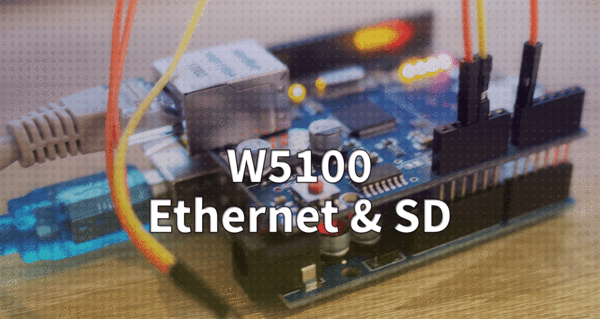
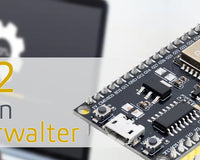
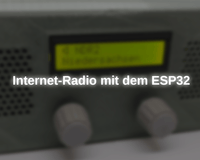






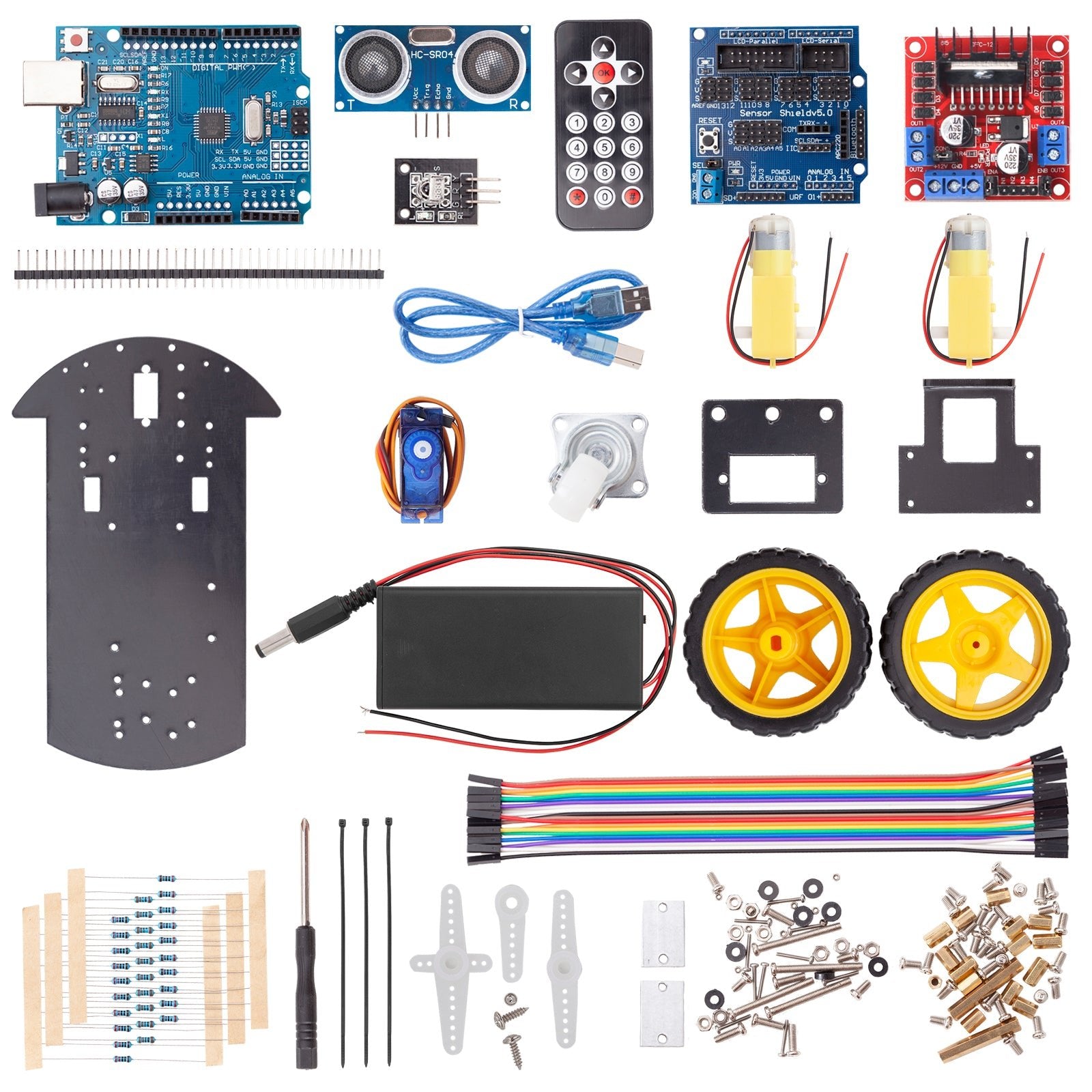
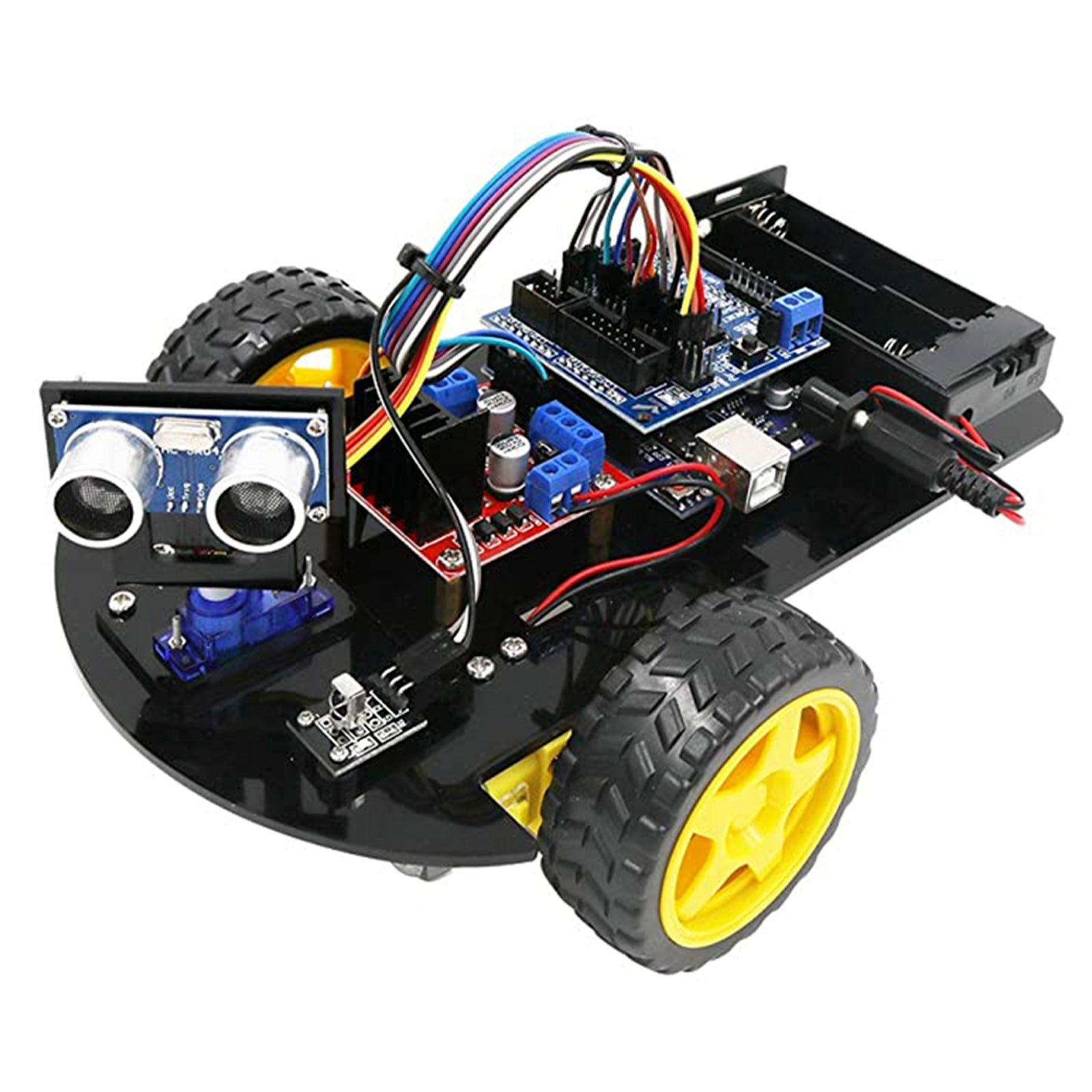
3 comments
H3
Oh wartet! im vorherigen war ein kleiner fehler! Dieser code funktioniert.
/*
Some code is from Bill Greiman’s SdFatLib examples, some is from the Arduino Ethernet WebServer example, some is from Limor Fried (Adafruit), some is from “jurs” for German Arduino forum, so its probably under GPLThis sketch uses the microSD card slot on the Arduino Ethernet shield
to serve up files over a very minimal browsing interface
*/
#include
#include
#include
/************ ETHERNET STUFF ************/
Byte mac[] = { 0xDE, 0xAD, 0xBE, 0xEF, 0xFE, 0xED };
Byte ip[] = { 192, 168, 178, 177 };
EthernetServer server(80);
/************ SDCARD STUFF ************/
Sd2Card card;
SdVolume volume;
SdFile root;
SdFile file;
// store error strings in flash to save RAM
#define error(s) error_P(PSTR)
void error_P(const char* str) {
PgmPrint("error: “);
SerialPrintln_P(str);
if (card.errorCode()) {
PgmPrint(”SD error: ");
Serial.print(card.errorCode(), HEX);
Serial.print(‘,’);
Serial.println(card.errorData(), HEX);
}
while (1);
}
char* strupper( char* s )
// helper function char array to uppercase letters
{
for (char* p = s; *p; ++p)
*p = toupper( *p );
return s;
}
char* strlower( char* s )
// helper function char array to lowercase letters
{
for (char* p = s; *p; ++p)
*p = tolower( *p );
return s;
}
void setup() {
PgmPrint("Free RAM: "); Serial.println(FreeRam()); // initialize the SD card at SPI_HALF_SPEED to avoid bus errors with // breadboards. use SPI_FULL_SPEED for better performance. pinMode(10, OUTPUT); // set the SS pin as an output (necessary!) pinMode(4, OUTPUT); digitalWrite(10, HIGH); // but turn off the W5100 chip! digitalWrite(4, HIGH); if (!card.init(SPI_FULL_SPEED, 4)) error(“card.init failed!”); // initialize a FAT volume if (!volume.init(&card)) error(“vol.init failed!”); PgmPrint(“Volume is FAT”); Serial.println(volume.fatType(), DEC); Serial.println(); if (!root.openRoot(&volume)) error(“openRoot failed”); // list file in root with date and size PgmPrintln(“Files found in root:”); root.ls(LS_DATE | LS_SIZE); Serial.println(); // Recursive list of all directories PgmPrintln(“Files found in all dirs:”); root.ls(LS_R); Serial.println(); PgmPrintln(“Done”); // Debugging complete, we start the server! Ethernet.begin(mac, ip); server.begin(); delay(1000); digitalWrite(8, LOW);Serial.begin(115200);
}
void ListFiles(EthernetClient client, uint8_t flags) {
root.rewind(); client.println(“”); while (root.readDir(p) > 0) { // done if past last used entry if (p.name0 == DIR_NAME_FREE) break; // skip deleted entry and entries for . and .. if (p.name0 == DIR_NAME_DELETED || p.name0 == ‘.’) continue; // only list subdirectories and files if (!DIR_IS_FILE_OR_SUBDIR(&p)) continue; // print any indent spaces client.print( for (uint8_t i = 0; i < 11; i++) { if (p.name[i] == ’ ’) continue; if (i == 8) { client.print(‘.’); } client.print((char)p.name[i]); } client.print(“\”>"); // print file name with possible blank fill for (uint8_t i = 0; i < 11; i++) { if (p.name[i] == ’ ’) continue; if (i == 8) { client.print(‘.’); } client.print((char)p.name[i]); } client.print(“”); if (DIR_IS_SUBDIR(&p)) { client.print(‘/’); } // print modify date/time if requested if (flags & LS_DATE) { root.printFatDate(p.lastWriteDate); client.print(’ ’); root.printFatTime(p.lastWriteTime); } // print size if requested if (!DIR_IS_SUBDIR(&p) && (flags & LS_SIZE)) { client.print(’ ’); client.print(p.fileSize); } client.println(“”); } client.println(“”);// This code is just copied from SdFile.cpp in the SDFat library
// and tweaked to print to the client output in html!
dir_t p;
}
// How big our line buffer should be. 100 is plenty!
#define BUFSIZ 100
void loop()
EthernetClient client = server.available(); if (client) { digitalWrite(8, HIGH); // an http request ends with a blank line boolean current_line_is_blank = true; // reset the input buffer index = 0; while (client.connected()) { if (client.available()) { char c = client.read(); // If it isn’t a new line, add the character to the buffer if (c != ‘\n’ && c != ‘\r’) { clientline[index] = c; index++; // are we too big for the buffer? start tossing out data if (index >= BUFSIZ) index = BUFSIZ – 1; // continue to read more data! continue; } // got a \n or \r new line, which means the string is done clientline[index] = 0; // Print it out for debugging Serial.println(clientline); // Look for substring such as a request to get the root file if (strstr(clientline, "GET / ") != 0) { // send a standard http response header client.println(“HTTP/1.1 200 OK”); client.println(“Content-Type: text/html”); client.println(); // print all the files, use a helper to keep it clean client.println(“Files:”); ListFiles(client, LS_SIZE); } else if (strstr(clientline, “GET /”) != 0) { // this time no space after the /, so a sub-file! char *filename; filename = clientline + 5; // look after the “GET /” (5 chars) // a little trick, look for the " HTTP/1.1" string and // turn the first character of the substring into a 0 to Clear it out. (strstr(clientline, " HTTP"))0 = 0; // print the file we want Serial.println(filename); if (! file.open(&root, filename, O_READ)) { client.println(“HTTP/1.1 404 Not Found”); client.println(“Content-Type: text/html”); client.println(); client.println(“File Not Found!”); break; } Serial.println(“Opened!”); strlower(filename); client.println(“HTTP/1.1 200 OK”); if (strstr(filename, “.html”) != NULL) client.println(“Content-Type: text/html”); else if (strstr(filename, “.jpg”) != NULL) client.println(“Content-Type: image/jpg”); else if (strstr(filename, “.png”) != NULL) client.println(“Content-Type: image/png”); else if (strstr(filename, “.mp3”) != NULL) client.println(“Content-Type: audio/mpeg”); else if (strstr(filename, “.ogg”) != NULL) client.println(“Content-Type: audio/ogg”); else if (strstr(filename, “.wav”) != NULL) client.println(“Content-Type: audio/wav”); else if (strstr(filename, “.m4a”) != NULL) client.println(“Content-Type: audio/mp4”); else if (strstr(filename, “.mp4”) != NULL) client.println(“Content-Type: video/mp4”); else client.println(“Content-Type: text/plain”); client.println(); int16_t c; while ((c = file.read()) >= 0) { // uncomment the serial to debug (slow!) //Serial.print((char)c); client.print((char)c); digitalWrite(8, !digitalRead(8)); if (!client.connected()) { break; } if (!client.available()) { break; } } file.close(); Serial.println(F(“Closed.”)); } else { // everything else is a 404 client.println(“HTTP/1.1 404 Not Found”); client.println(“Content-Type: text/html”); client.println(); client.println(“File Not Found!”); } break; } } // give the web browser time to receive the data delay(1); client.stop(); digitalWrite(8, LOW); }{
char clientline[BUFSIZ];
int index = 0;
}
H3
Hab ein paar verbesserungen getätigt.
u.a. stoppt die übertragung jetzt wenn der client disconnected. außerdem gibt es jetzt eine Info LED auf pin 8 die aktivität anzeigt.
/*
Some code is from Bill Greiman’s SdFatLib examples, some is from the Arduino Ethernet WebServer example, some is from Limor Fried (Adafruit), some is from “jurs” for German Arduino forum, so its probably under GPLThis sketch uses the microSD card slot on the Arduino Ethernet shield
to serve up files over a very minimal browsing interface
*/
#include
#include
#include
/************ ETHERNET STUFF ************/
Byte mac[] = { 0xDE, 0xAD, 0xBE, 0xEF, 0xFE, 0xED };
Byte ip[] = { 192, 168, 178, 177 };
EthernetServer server(80);
/************ SDCARD STUFF ************/
Sd2Card card;
SdVolume volume;
SdFile root;
SdFile file;
// store error strings in flash to save RAM
#define error(s) error_P(PSTR)
void error_P(const char* str) {
PgmPrint("error: “);
SerialPrintln_P(str);
if (card.errorCode()) {
PgmPrint(”SD error: ");
Serial.print(card.errorCode(), HEX);
Serial.print(‘,’);
Serial.println(card.errorData(), HEX);
}
while (1);
}
char* strupper( char* s )
// helper function char array to uppercase letters
{
for (char* p = s; *p; ++p)
*p = toupper( *p );
return s;
}
char* strlower( char* s )
// helper function char array to lowercase letters
{
for (char* p = s; *p; ++p)
*p = tolower( *p );
return s;
}
void setup() {
PgmPrint("Free RAM: "); Serial.println(FreeRam()); // initialize the SD card at SPI_HALF_SPEED to avoid bus errors with // breadboards. use SPI_FULL_SPEED for better performance. pinMode(10, OUTPUT); // set the SS pin as an output (necessary!) pinMode(4, OUTPUT); digitalWrite(10, HIGH); // but turn off the W5100 chip! digitalWrite(4, HIGH); if (!card.init(SPI_FULL_SPEED, 4)) error(“card.init failed!”); // initialize a FAT volume if (!volume.init(&card)) error(“vol.init failed!”); PgmPrint(“Volume is FAT”); Serial.println(volume.fatType(), DEC); Serial.println(); if (!root.openRoot(&volume)) error(“openRoot failed”); // list file in root with date and size PgmPrintln(“Files found in root:”); root.ls(LS_DATE | LS_SIZE); Serial.println(); // Recursive list of all directories PgmPrintln(“Files found in all dirs:”); root.ls(LS_R); Serial.println(); PgmPrintln(“Done”); // Debugging complete, we start the server! Ethernet.begin(mac, ip); server.begin(); delay(1000); digitalWrite(8, LOW);Serial.begin(115200);
}
void ListFiles(EthernetClient client, uint8_t flags) {
root.rewind(); client.println(“”); while (root.readDir(p) > 0) { // done if past last used entry if (p.name0 == DIR_NAME_FREE) break; // skip deleted entry and entries for . and .. if (p.name0 == DIR_NAME_DELETED || p.name0 == ‘.’) continue; // only list subdirectories and files if (!DIR_IS_FILE_OR_SUBDIR(&p)) continue; // print any indent spaces client.print( for (uint8_t i = 0; i < 11; i++) { if (p.name[i] == ’ ’) continue; if (i == 8) { client.print(‘.’); } client.print((char)p.name[i]); } client.print(“\”>"); // print file name with possible blank fill for (uint8_t i = 0; i < 11; i++) { if (p.name[i] == ’ ’) continue; if (i == 8) { client.print(‘.’); } client.print((char)p.name[i]); } client.print(“”); if (DIR_IS_SUBDIR(&p)) { client.print(‘/’); } // print modify date/time if requested if (flags & LS_DATE) { root.printFatDate(p.lastWriteDate); client.print(’ ’); root.printFatTime(p.lastWriteTime); } // print size if requested if (!DIR_IS_SUBDIR(&p) && (flags & LS_SIZE)) { client.print(’ ’); client.print(p.fileSize); } client.println(“”); } client.println(“”);// This code is just copied from SdFile.cpp in the SDFat library
// and tweaked to print to the client output in html!
dir_t p;
}
// How big our line buffer should be. 100 is plenty!
#define BUFSIZ 100
void loop()
EthernetClient client = server.available(); if (client) { digitalWrite(8, HIGH); // an http request ends with a blank line boolean current_line_is_blank = true; // reset the input buffer index = 0; while (client.connected()) { if (client.available()) { char c = client.read(); // If it isn’t a new line, add the character to the buffer if (c != ‘\n’ && c != ‘\r’) { clientline[index] = c; index++; // are we too big for the buffer? start tossing out data if (index >= BUFSIZ) index = BUFSIZ – 1; // continue to read more data! continue; } // got a \n or \r new line, which means the string is done clientline[index] = 0; // Print it out for debugging Serial.println(clientline); // Look for substring such as a request to get the root file if (strstr(clientline, "GET / ") != 0) { // send a standard http response header client.println(“HTTP/1.1 200 OK”); client.println(“Content-Type: text/html”); client.println(); // print all the files, use a helper to keep it clean client.println(“Files:”); ListFiles(client, LS_SIZE); } else if (strstr(clientline, “GET /”) != 0) { // this time no space after the /, so a sub-file! char *filename; filename = clientline + 5; // look after the “GET /” (5 chars) // a little trick, look for the " HTTP/1.1" string and // turn the first character of the substring into a 0 to Clear it out. (strstr(clientline, " HTTP"))0 = 0; // print the file we want Serial.println(filename); if (! file.open(&root, filename, O_READ)) { client.println(“HTTP/1.1 404 Not Found”); client.println(“Content-Type: text/html”); client.println(); client.println(“File Not Found!”); break; } Serial.println(“Opened!”); strlower(filename); client.println(“HTTP/1.1 200 OK”); if (strstr(filename, “.html”) != NULL) client.println(“Content-Type: text/html”); else if (strstr(filename, “.jpg”) != NULL) client.println(“Content-Type: image/jpg”); else if (strstr(filename, “.png”) != NULL) client.println(“Content-Type: image/png”); else if (strstr(filename, “.mp3”) != NULL) client.println(“Content-Type: audio/mpeg”); else if (strstr(filename, “.ogg”) != NULL) client.println(“Content-Type: audio/ogg”); else if (strstr(filename, “.wav”) != NULL) client.println(“Content-Type: audio/wav”); else if (strstr(filename, “.m4a”) != NULL) client.println(“Content-Type: audio/mp4”); else if (strstr(filename, “.mp4”) != NULL) client.println(“Content-Type: video/mp4”); else client.println(“Content-Type: text/plain”); client.println(); int16_t c; while ((c = file.read()) >= 0) { // uncomment the serial to debug (slow!) //Serial.print((char)c); client.print((char)c); digitalWrite(8, !digitalRead(8)); if (!client.connected()) { return; } if (!client.available()) { return; } } file.close(); Serial.println(F(“Closed.”)); } else { // everything else is a 404 client.println(“HTTP/1.1 404 Not Found”); client.println(“Content-Type: text/html”); client.println(); client.println(“File Not Found!”); } break; } } // give the web browser time to receive the data delay(1); client.stop(); digitalWrite(8, LOW); }{
char clientline[BUFSIZ];
int index = 0;
}
Magnus
I just bought from you a EthernetShield W5100 and wanted to test it with your code but I always get SD error: 1, FF with the code in the blog.
I have tried the code in the eBook. The WebServer example code works well, but the “Serving the web page from SD card, with AJAX” gives always a SD error.
Any clue to sort this out ?